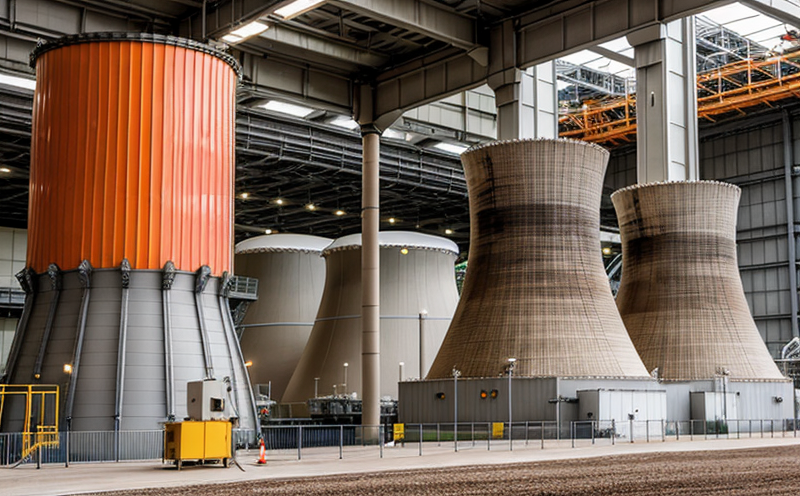ISO 11846 SCC Testing of Reactor Aluminum Components
The testing and certification of reactor aluminum components are critical to ensuring the safety, reliability, and longevity of nuclear power plants. These components, which include pressure vessel parts, heat exchangers, and piping systems, must withstand extreme conditions without degradation or failure.
ISO 11846 specifies the acceptance criteria for the chemical composition, mechanical properties, and microstructure of aluminum alloys used in reactor applications. This standard is particularly important as it ensures that materials meet stringent quality requirements necessary for nuclear power plant safety.
The testing process involves several key steps. First, raw material samples are collected from suppliers to verify their conformity with the specified alloy specifications. Next, these samples undergo chemical analysis using inductively coupled plasma optical emission spectrometry (ICP-OES) and energy-dispersive X-ray spectroscopy (EDX). These analyses ensure that all elements present within the sample comply with the tolerances defined by ISO 11846.
Once verified, the samples are fabricated into suitable specimens for mechanical property testing. This typically involves tensile tests to measure yield strength and ultimate tensile strength (UTS), as well as hardness testing using Rockwell or Brinell scales. Microstructural examination through scanning electron microscopy (SEM) or optical microscopy further evaluates grain size and distribution, which can impact the material’s performance under irradiation.
The most critical aspect of this service is the assessment of susceptibility to stress corrosion cracking (SCC). This phenomenon occurs when certain alloys, particularly those containing specific concentrations of chromium, nickel, copper, or iron, form cracks in an aqueous environment. To evaluate SCC resistance, a specialized test method outlined in ISO 11846-7 is employed. Specimens are exposed to a simulated reactor water chemistry for extended periods before being visually inspected and evaluated for crack formation.
Given the stringent regulatory requirements surrounding nuclear safety, compliance with these tests ensures that suppliers meet international standards set by organizations like the International Atomic Energy Agency (IAEA), European Union directives, and national regulations. By adhering to ISO 11846 SCC testing protocols, manufacturers can demonstrate their commitment to producing high-quality components that will perform reliably under reactor conditions.
- Verification of chemical composition through ICP-OES and EDX
- Tensile testing for yield strength and ultimate tensile strength (UTS)
- Determination of hardness via Rockwell or Brinell scales
- Microstructural evaluation using SEM or optical microscopy
- Evaluation of stress corrosion cracking susceptibility in simulated reactor water chemistry environments
Why Choose This Test
- Comprehensive evaluation of aluminum components for stress corrosion cracking (SCC) susceptibility
- Verification of chemical composition and mechanical properties according to ISO standards
- Supports compliance with international regulations and safety requirements
- Enhances the reliability and longevity of nuclear power plant systems
- Promotes trust among customers and stakeholders through proven quality assurance practices
International Acceptance and Recognition
The ISO 11846 standard has gained widespread acceptance in the nuclear industry, recognized by organizations such as the IAEA. Compliance with this standard ensures that manufacturers meet international safety and quality criteria, thereby enhancing their global marketability.
Competitive Advantage and Market Impact
By offering ISO 11846 SCC testing services, we help our clients gain a competitive edge in the nuclear sector. Meeting these stringent standards can open doors to lucrative contracts with leading power plant operators worldwide. Moreover, it fosters customer confidence, reducing potential risks and liabilities associated with material failures.





